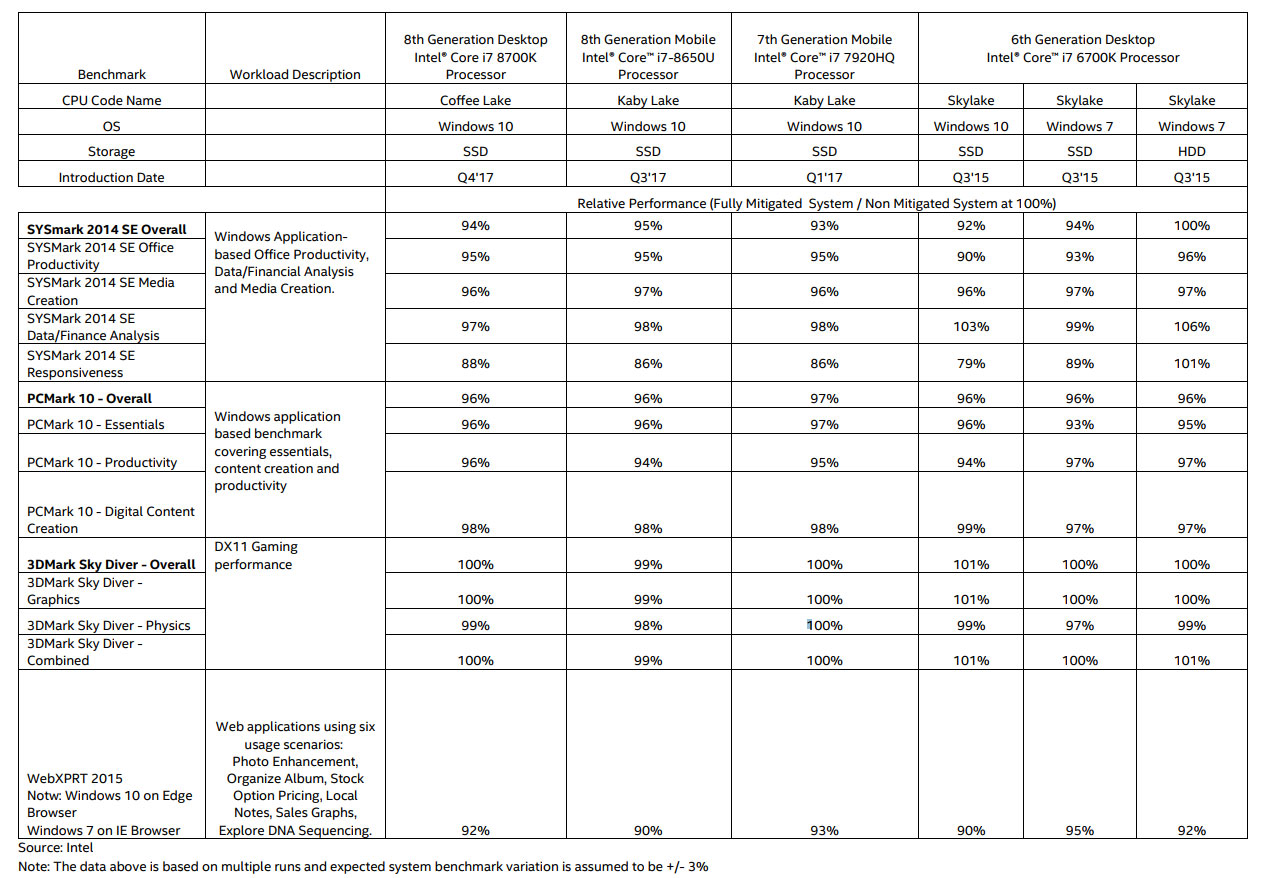Intel shares more benchmarks, including graphics, from Spectre and Meltdown patches
Gaming will see 'minimal impact' after applying security updates.

Intel has provided an expanded set of benchmarks that compare the performance of several generations of processors before and after applying Meltdown and Spectre security patches. In doing so, Intel stands by its previous claim that users can generally expect a six percent performance penalty or less, though in some cases the numbers show it could be much higher.
The most alarming benchmark result from Intel's own numbers is a 21 percent hit on a Core i7-6700K processor, which was also paired with an SSD in Windows 10. It stands out as the biggest penalty of the bunch, though to be fair, it happened in an individual test in Sysmark 2014 SE—the overall drop in that benchmark checks in at eight percent.
Here's a look at all of the numbers Intel shared:

The particular test that spanked the Core i7-6700K also proved troublesome for every other processor in Windows 10, though interestingly it actually ran a little faster in Windows 7 on an HDD after applying the security patches.
"We previously said that we expected our performance impact should not be significant for average computer users, and the data we are sharing today support that expectation on these platforms," Intel said.
Intel did concede that in some cases, "users may see a more noticeable impact" than the "less than six percent" figure it's been throwing around. Specifically, Intel pointed to web applications that involve complex JavaScript operations as having up to a 10 percent performance penalty, based on its initial numbers.
The good news for gamers is that Intel doesn't expect the security updates to do much damage. "Workloads that are graphics-intensive like gaming or compute-intensive like financial analysis see minimal impact," Intel added.
The biggest gaming news, reviews and hardware deals
Keep up to date with the most important stories and the best deals, as picked by the PC Gamer team.
The numbers Intel shared are fairly limited in scope, in terms of the number of platforms tested. Specifically, all of the 6th, 7th, and 8th generation processors tested share the same base 14nm Skylake architecture, and indications are that Broadwell and older generation Intel CPUs may be harder hit. However, Intel says it's in the process of collecting more data from a broad range of usages and platforms that were launched in the past five years, both mobile and desktop. The company expects to share that data within the week.
Paul has been playing PC games and raking his knuckles on computer hardware since the Commodore 64. He does not have any tattoos, but thinks it would be cool to get one that reads LOAD"*",8,1. In his off time, he rides motorcycles and wrestles alligators (only one of those is true).


